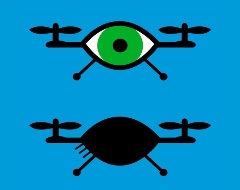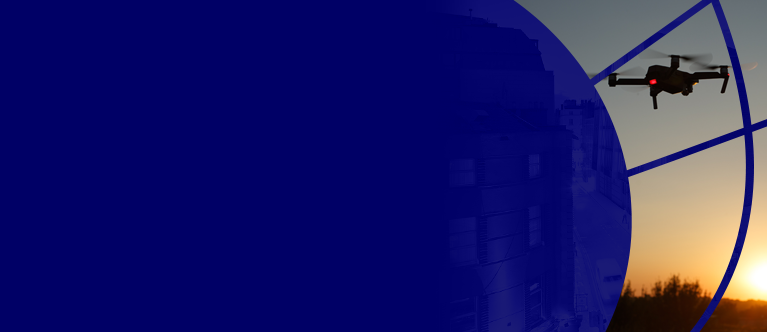Data Privacy and Drones
Every EU resident has the fundamental right to privacy. The General Data Protection Regulation (GDPR) is a comprehensive law in the European Union aimed at protecting the rights of individuals resident in the EU and applies to all organisations and persons that process personal data belonging to EU residents.
Unmanned Aircraft Systems (UAS) give us a lot of new opportunities for collecting data using:
- Cameras
- Microphones
- IR imaging devices
- LiDAR
- Thermal imaging cameras
Drones can be used for a variety of tasks, including surveying, security, agriculture, real estate, photography, live entertainment, and more. They are an excellent instrument for gathering high-definition photos because they can be controlled remotely (even in inaccessible places).
 Unfortunately, they can also be used illegally or to invade the privacy of others. As a result, if the UAV is equipped with a sensor system capable of recording personal data (unless the UAS falls under the EU Toy Directive - Directive 2009/48/EC), the operator must be registered.
Unfortunately, they can also be used illegally or to invade the privacy of others. As a result, if the UAV is equipped with a sensor system capable of recording personal data (unless the UAS falls under the EU Toy Directive - Directive 2009/48/EC), the operator must be registered.
Like mobile phone cameras, video doorbells, and dashcams, drones are highly likely to capture personal data of passers-by (data subjects). Where identifiable information (e.g., car license plates, visibly identifiable faces, etc) is captured, the operator qualifies as a data controller.
Concerns relating to your data protection rights should be raised to the data protection commission providing the details of the data controller. You should try to contact the data controller wherever possible and appropriate.
The data protection commission provides guidance on the use of drones available on the Data Protection Commissioner's website.
Queries in relation to data privacy for drone operations in local authorities can be found on the Smart Dublin website.
Other concerns of drone usage should be reported to the IAA via email.
Privacy Notices
Privacy notice for Dublin Drone Innovation Partnership can be found here: Privacy Notice for Aeroscope Study


